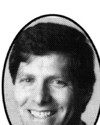Mr. Speaker, I would like to bring to the attention of hon. members that November 1 marks the 50th anniversary of the opening of the Conference on International Civil Aviation to be held at Chicago, Illinois.
It was 50 years ago tomorrow that representatives from 52 countries, including Canada, met to map the future of international civil aviation. Their deliberations led to the signing on December 7, 1944 of the multilateral convention on international civil aviation and the eventual selection of Montreal as headquarters for the newly created International Civil Aviation Organization.
The International Civil Aviation Organization is a United Nations specialized agency responsible for establishing international standards, recommended practices and procedures covering the technical, economic and legal aspects of international civil aviation operations. The organization's membership is made up of 183 contracting states.
November 1st is not only a proud day in the history of civil aviation; it is also a proud day for Canada. The International Civil Aviation Organization is the only UN agency with headquarters in Canada.
We were chosen as the home for this important agency because of our instrumental role at the Chicago Conference. Canada continues in its leadership role in civil aviation and remains a strong supporter of the International Civil Aviation Organization.
We salute those who gathered at Chicago five decades ago in the closing days of the second world war. In particular, I would
like to recognize three distinguished Canadians who took part in those deliberations and who are still with us today.
Former Ambassador Escott Reid helped draft the conference documents. He now lives near Toronto.
Mr. Jean Fournier, the youngest of the Canadian delegates to the Chicago Conference, now lives in Montreal.
Mr. Stanislav Krejcik was a member of the Czechoslovakian delegation. He is now a Canadian citizen living in the province of Alberta.
Canadians know firsthand the paramount importance that safe, regular, efficient and economical air transportation plays in building communities, and in contributing to development and economic well-being. We are grateful to the International Civil Aviation Organization for helping to ensure the safety and security of air transportation worldwide.
Commemorative activities, including flag raisings at airports across the country, will mark tomorrow's anniversary of the opening of the Chicago conference. And in December, in Montreal, we will hold celebrations marking the signing of the Convention on International Civil Aviation.
It can only be hoped that the same spirit of mutual understanding and co-operation that has made the International Civil Aviation Organization so successful for over 50 years will continue.













